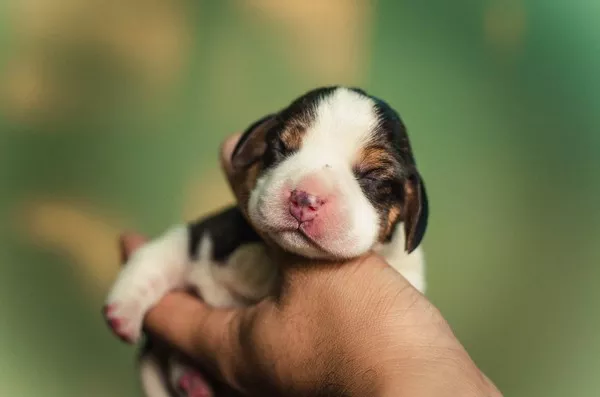The Devon Rex cat, with its striking looks and playful personality, is a breed that has captured the hearts of many cat enthusiasts. As a relatively new breed, having been developed in the 1960s in Devon, England, the Devon Rex has become popular not only for its unique appearance—characterized by its curly coat and large ears—but also for its affectionate nature and energetic demeanor. However, one of the most pressing questions potential owners have is about the lifespan of these fascinating felines. In this article, we will explore various factors influencing the lifespan of indoor Devon Rex cats, their general health, common health issues, diet, exercise needs, and overall care to help ensure they lead long, healthy lives.
Understanding the Lifespan of Devon Rex Cats
The average lifespan of indoor cats ranges from 12 to 15 years, with many living well into their late teens and even early twenties with proper care. Devon Rex cats, in particular, have a lifespan that aligns with this range, generally living between 12 to 15 years, although some individuals may exceed this average under optimal conditions. Various factors can influence the longevity of these cats, including genetics, environment, diet, healthcare, and lifestyle choices.
1. Genetics and Breeding
Genetics plays a crucial role in the lifespan and overall health of any breed, including the Devon Rex. Responsible breeding practices are essential to minimize the risk of hereditary health issues. Breeders who prioritize genetic health will conduct health screenings for conditions common in the breed, ensuring that only the healthiest cats are used for breeding.
Some hereditary conditions that may affect the Devon Rex include:
Hypertrophic Cardiomyopathy (HCM): A common heart condition in many cat breeds, including the Devon Rex, HCM can lead to heart failure if not monitored and managed effectively.
Dental Issues: Some Devon Rex cats are predisposed to dental problems, which can lead to more severe health issues if not addressed.
Choosing a reputable breeder who conducts health tests on their breeding cats can help ensure that your Devon Rex has the best genetic background for a longer life.
2. Indoor vs. Outdoor Living
The environment in which a cat lives significantly impacts its lifespan. Indoor cats, including Devon Rexes, typically live longer than their outdoor counterparts due to several factors:
Reduced Risk of Accidents: Indoor cats are less likely to encounter dangers such as traffic, predators, and other hazards.
Controlled Environment: Living indoors allows for better control over a cat’s diet and healthcare, reducing exposure to parasites and diseases that are more prevalent outdoors.
Less Stress: Indoor cats often experience less stress compared to outdoor cats, as they are not exposed to territorial disputes and the challenges of finding shelter or food.
For these reasons, keeping your Devon Rex as an indoor cat can enhance its longevity.
3. Health Care and Veterinary Visits
Regular veterinary check-ups are essential for maintaining the health of any cat, including Devon Rexes. Annual or biannual veterinary visits allow for early detection and treatment of health issues. Routine health care should include:
Vaccinations: Keeping vaccinations up to date protects against various infectious diseases.
Dental Care: Regular dental cleanings and at-home dental care can prevent periodontal disease and other dental issues.
Parasite Control: Discuss a parasite prevention plan with your veterinarian to protect against fleas, ticks, and worms.
Spaying/Neutering: Spaying or neutering not only prevents unwanted litters but also reduces the risk of certain health problems, such as certain cancers.
4. Nutrition and Diet
Diet is a significant factor influencing the health and lifespan of Devon Rex cats. Feeding a balanced, high-quality diet tailored to your cat’s specific needs can help ensure optimal health. Key considerations include:
High-Quality Protein: Cats are obligate carnivores, which means they require a diet rich in animal protein. Look for foods that list a high-quality protein source as the first ingredient.
Life Stage Considerations: Kittens, adults, and senior cats have different nutritional requirements. It’s essential to choose a diet appropriate for your Devon Rex’s life stage.
Hydration: Ensure your cat has access to fresh, clean water at all times. Consider incorporating wet food into their diet, which can help increase water intake.
Monitoring your Devon Rex’s weight and body condition is also crucial, as obesity can lead to various health issues and shorten lifespan.
5. Exercise and Mental Stimulation
Devon Rex cats are known for their playful and energetic nature, which means they require regular exercise and mental stimulation. Engaging your cat in playtime and providing interactive toys can help keep them physically fit and mentally sharp. Some tips include:
Interactive Toys: Toys that encourage hunting behaviors, such as feather wands or laser pointers, can provide great exercise.
Climbing Structures: Cat trees and shelves allow your Devon Rex to climb, explore, and satisfy their curiosity.
Social Interaction: Devon Rex cats thrive on human interaction and companionship. Spend quality time playing and engaging with your cat daily.
6. Behavioral Considerations
The Devon Rex is known for its sociable and affectionate personality. Understanding their behavioral traits can help create a harmonious environment that promotes well-being and longevity. Some important behavioral aspects to consider include:
Social Needs: Devon Rex cats are highly social and often form strong bonds with their owners. They may become anxious or depressed if left alone for long periods. Providing companionship through another cat or pet can be beneficial.
Playfulness: This breed is known for its playful antics, so providing toys and activities that engage their curiosity is essential.
Stress Management: Reducing stress in your cat’s environment can help prevent health issues. This includes providing safe hiding spaces and avoiding sudden changes in routine.
7. Common Health Issues in Devon Rex Cats
As mentioned earlier, Devon Rex cats may be prone to certain health issues that can affect their lifespan. Being aware of these conditions can help in early detection and management. Some common health problems in Devon Rex cats include:
Hypertrophic Cardiomyopathy (HCM): Regular veterinary check-ups and echocardiograms can help monitor heart health. Early detection is crucial for management.
Skin Problems: Due to their short coat, Devon Rex cats can be prone to skin issues, including allergies and dermatitis. Regular grooming and monitoring for signs of irritation are essential.
Obesity: Given their playful nature, it’s easy for Devon Rex cats to become overweight. Regular exercise and portion control can help maintain a healthy weight.
8. Environmental Enrichment
Creating an enriching environment is vital for the overall well-being of your Devon Rex. Here are some tips for enhancing their living space:
Vertical Space: Providing vertical spaces, such as cat trees or shelves, can satisfy their natural climbing instincts.
Interactive Play: Rotating toys regularly can keep your cat mentally stimulated. Puzzle feeders are an excellent way to engage their problem-solving skills while providing a reward.
Natural Light: Ensure your cat has access to natural light, as it can positively impact their mood and overall health.
9. Aging and Senior Care
As your Devon Rex ages, their needs may change. Senior cats often require different care compared to younger cats. Here are some considerations for senior Devon Rex care:
Regular Health Check-ups: Increased veterinary visits are essential for monitoring age-related health issues.
Diet Adjustments: Senior cats may benefit from diets formulated for their specific life stage, focusing on maintaining a healthy weight and supporting joint health.
Comfort: Ensure your home environment is comfortable and accessible, with cozy spots for resting and easy access to food, water, and litter boxes.
Conclusion
In conclusion, the lifespan of indoor Devon Rex cats can be influenced by a variety of factors, including genetics, environment, healthcare, nutrition, exercise, and social needs. On average, with proper care, Devon Rex cats can live between 12 to 15 years, with many reaching even older ages. By focusing on responsible breeding, regular veterinary care, a balanced diet, and an enriching environment, you can help your Devon Rex live a long, healthy, and happy life.
As a potential or current owner of a Devon Rex, understanding these factors can help you provide the best possible care for your feline companion, ensuring they thrive and enrich your life for many years to come. Remember, a proactive approach to health and well-being will significantly contribute to your Devon Rex’s longevity, allowing you to enjoy countless cherished moments together.
Related Topics:

























